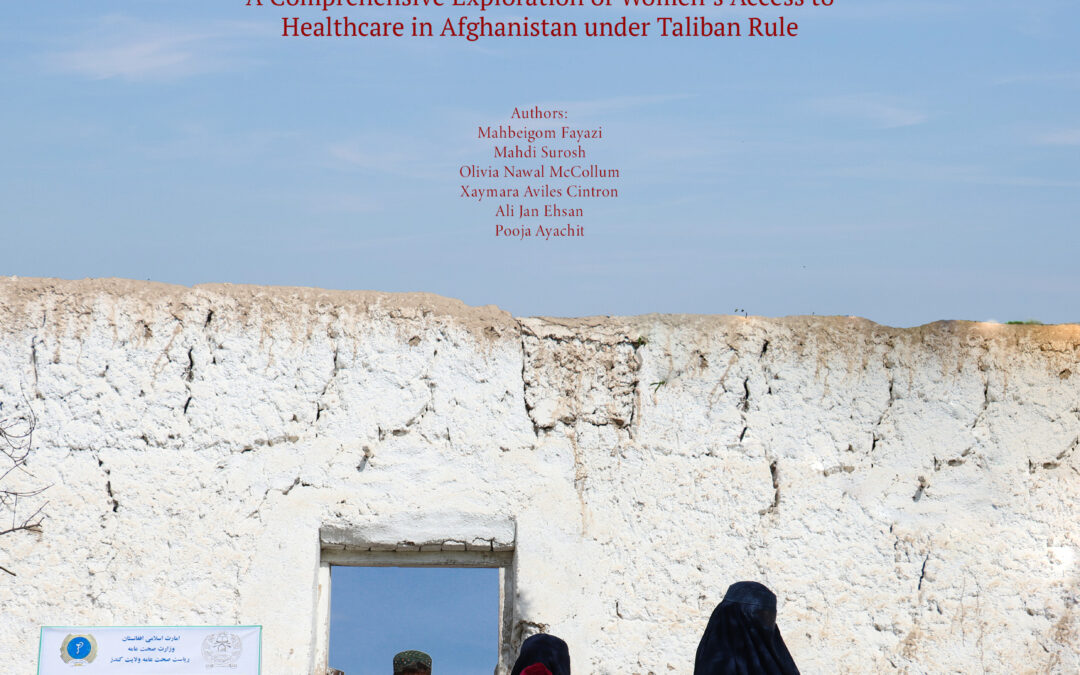Background
In recent times, Afghanistan has faced a whirlwind of sociopolitical changes that have deeply affected its healthcare landscape, notably with the transition following the Taliban’s take over of the country in August 2021.This change in power has had a significant and concerning impact on health services in the country. The sudden power shift has disrupted the nation’s already fragile healthcare infrastructure, leading to a sharp decline in access to medical care. The Taliban’s strict interpretation of Islamic law, which often restricts women’s movement and participation in the workforce, has led to a shortage of female healthcare professionals, making it difficult for many Afghan women to seek medical assistance (United States Department of State, 2022). Additionally, the decline of international aid and the fear of reprisals have caused many healthcare workers to flee the country, exacerbating the shortage of skilled medical personnel (Yasmin and Najeeb, 2022).
In addition to the effect on immediate health outcomes, the broader socioeconomic implications of disrupted healthcare cannot be ignored. Compromised healthcare systems, such as that of Afghanistan now, lead to decreased workforce productivity, increased morbidity and mortality of citizens, and further strains placed on already burdened economies. Moreover, the takeover of the Taliban resulted in a shift in international collaborations, aid, and support, all of which can significantly impact healthcare access and quality. Understanding and addressing healthcare needs during these times of uncertainty is pivotal to ensuring the country’s overall stability and the well-being of citizens.
The research included in this report aims to delve into the intricacies of healthcare access in Afghanistan after the Taliban takeover, attempting to uncover the complexities and challenges faced by both recipients of care and female care providers. Recognizing the multifaceted nature of the subject, our investigation employs a mixed-methods approach, synergizing quantitative metrics with qualitative insights to present a comprehensive picture. Our primary objectives are to examine women’s access to health services in Afghanistan, under the Taliban rule, and recommend actionable strategies to enhance respectful, fair, and inclusive access to healthcare services for women. By presenting our findings we aim to generate meaningful evidence for constructive interventions and policy formulations for fair, high-quality, and inclusive healthcare service delivery in Afghanistan.

